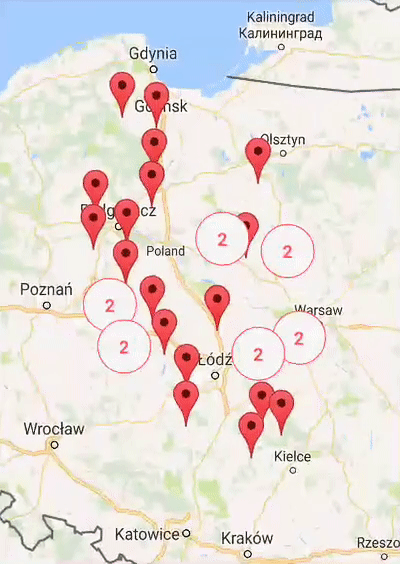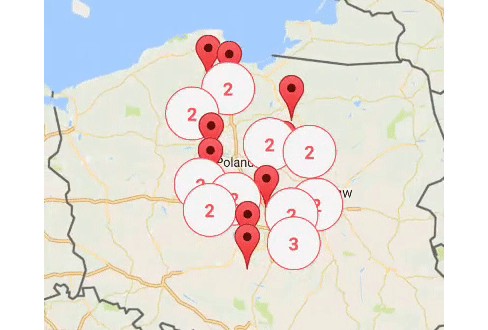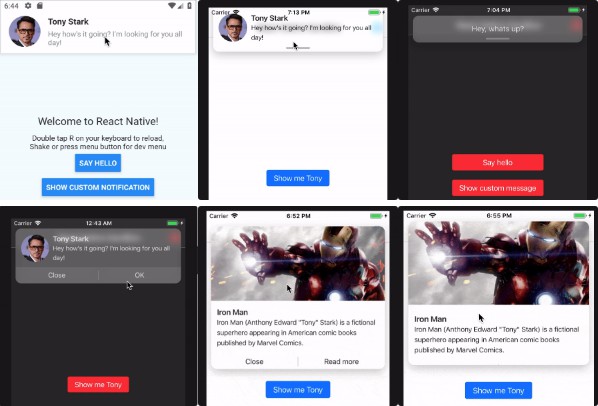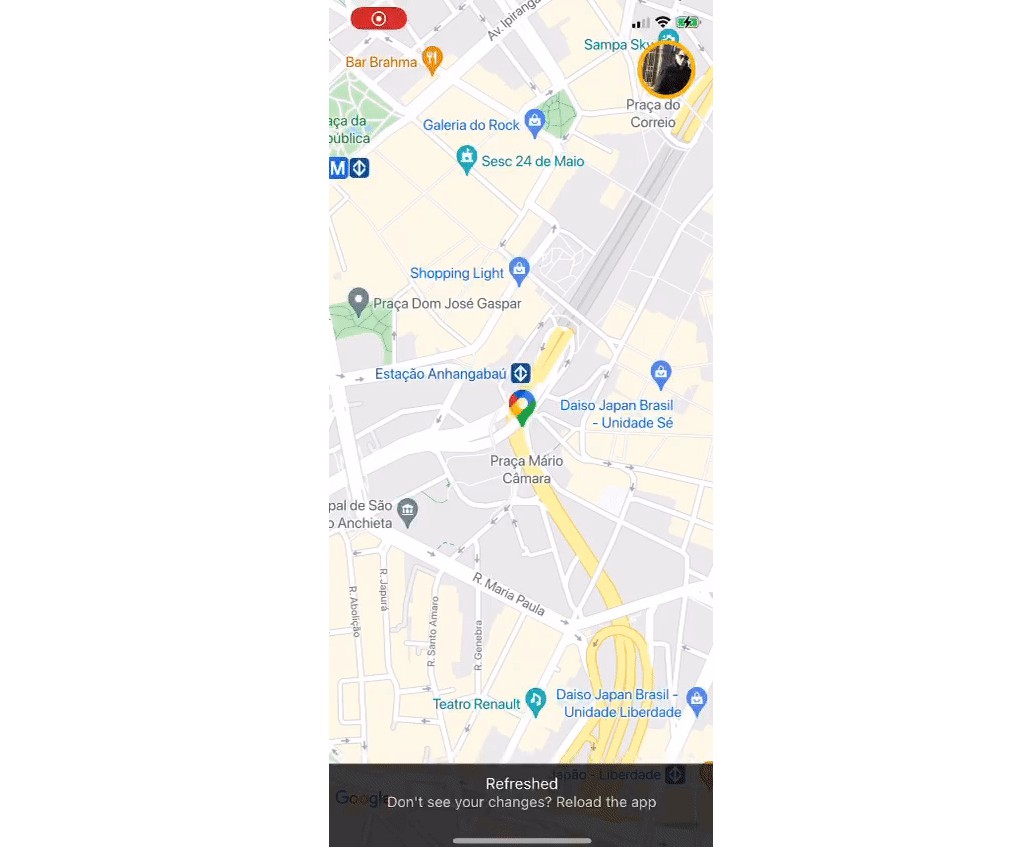React Native Map Clustering
React Native module that handles map clustering for you.
Works with Expo and react-native-cli.
Installation
npm install react-native-map-clustering --save
Usage
- Import Components
import MapView from 'react-native-map-clustering';
import { Marker } from 'react-native-maps';
- In render() method add this:
<MapView
region={{
latitude: 52.5,
longitude: 19.2,
latitudeDelta: 8.5,
longitudeDelta: 8.5
}}
style={{ width: 400, height: 800 }}
>
<Marker coordinate={{ latitude: 52.0, longitude: 18.2 }} />
<Marker coordinate={{ latitude: 52.4, longitude: 18.7 }} />
<Marker coordinate={{ latitude: 52.1, longitude: 18.4 }} />
<Marker coordinate={{ latitude: 52.6, longitude: 18.3 }} />
<Marker coordinate={{ latitude: 51.6, longitude: 18.0 }} />
<Marker coordinate={{ latitude: 53.1, longitude: 18.8 }} />
<Marker coordinate={{ latitude: 52.9, longitude: 19.4 }} />
<Marker coordinate={{ latitude: 52.2, longitude: 21 }} />
</MapView>
Demo

MapView
| Name | Type | Default | Note |
|---|---|---|---|
| clustering | bool | true | Set true to enable and false to disable clustering. |
| clusterColor | String | #F5F5F5 | Background color of cluster. |
| clusterTextColor | String | #FF5252 | Color of text in cluster. |
| clusterBorderColor | String | #FF5252 | Color of border. Set to transparent if you don't want borders. |
| clusterBorderWidth | Int | 1 | Width of border. Set to 0 if you don't want borders. |
| customDefinedMarker | Marker | null | Define a custom react component that is used to render the cluster markers. |
| onClusterPress | Function | null | Allows you to control cluster on click event. Function returns coordinate of cluster. |
Marker
| Name | Type | Default | Note |
|---|---|---|---|
| cluster | bool | null | Set false to disable clustering for current marker. |




